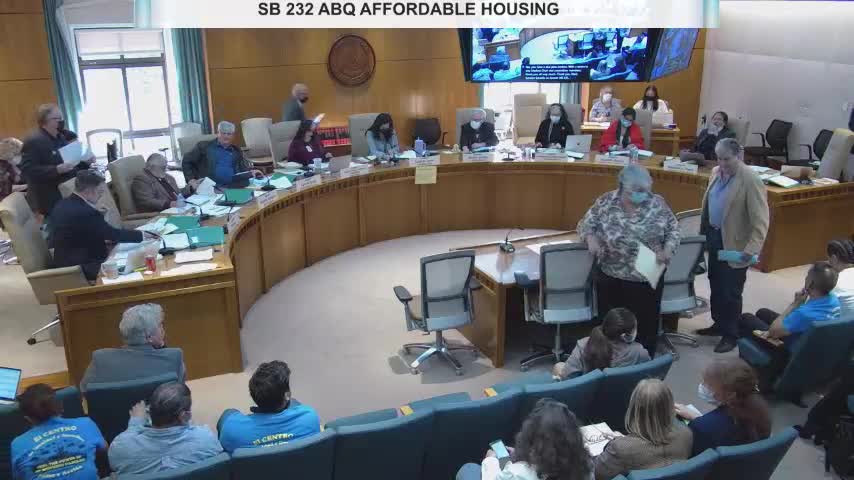New Mexico Senate Bill 235 Addresses Math Education Gaps and Professional Development
March 02, 2025 | Health and Public Affairs, Senate, Committees, Legislative, New Mexico
This article was created by AI summarizing key points discussed. AI makes mistakes, so for full details and context, please refer to the video of the full meeting. Please report any errors so we can fix them. Report an error »

A pivotal discussion on enhancing math education took place during the New Mexico Senate Health and Public Affairs Committee meeting on March 2, 2025. The focus was on Senate Bill 235, which aims to address significant gaps in math instruction following the Martius Yazzie lawsuit, which highlighted educational deficiencies in the state.
Senator Sowell emphasized the urgent need to shift attention to math education, noting that while progress has been made in reading, math has lagged behind. The proposed bill outlines a comprehensive framework for improving math instruction, including the establishment of professional development plans for teachers and the introduction of minimum math course requirements for teacher licensing.
Deputy Secretary Amanda DeBell from the New Mexico Department of Education elaborated on the bill's provisions, which include a delay in implementation to ensure that all necessary frameworks are in place by 2026. This delay aims to allow districts adequate time to adopt the new math framework and identify students struggling with math difficulties.
Support for the bill was robust, with various stakeholders, including educators and advocates, voicing their approval. Jason Espinosa from New Mexico Kids Can highlighted the importance of parent engagement, noting a disconnect between parental perceptions of their children's math proficiency and actual performance levels. Jacqueline Costales, a curriculum director, echoed the need for a statewide focus on math, particularly in light of the pandemic's impact on student performance.
However, the bill faced scrutiny regarding its effectiveness in addressing the specific needs of diverse student populations, particularly English language learners. Concerns were raised about the lack of disaggregated data to measure the bill's impact on different demographic groups, which some committee members felt was essential to truly address the issues highlighted in the Yazzie case.
As the committee deliberated, the overarching sentiment was clear: New Mexico's math education system requires urgent reform to ensure that all students receive the support they need to succeed. The anticipated outcomes of the bill include improved math proficiency across the state, with a commitment to ongoing evaluation and adjustment of strategies to meet the diverse needs of students.
Senator Sowell emphasized the urgent need to shift attention to math education, noting that while progress has been made in reading, math has lagged behind. The proposed bill outlines a comprehensive framework for improving math instruction, including the establishment of professional development plans for teachers and the introduction of minimum math course requirements for teacher licensing.
Deputy Secretary Amanda DeBell from the New Mexico Department of Education elaborated on the bill's provisions, which include a delay in implementation to ensure that all necessary frameworks are in place by 2026. This delay aims to allow districts adequate time to adopt the new math framework and identify students struggling with math difficulties.
Support for the bill was robust, with various stakeholders, including educators and advocates, voicing their approval. Jason Espinosa from New Mexico Kids Can highlighted the importance of parent engagement, noting a disconnect between parental perceptions of their children's math proficiency and actual performance levels. Jacqueline Costales, a curriculum director, echoed the need for a statewide focus on math, particularly in light of the pandemic's impact on student performance.
However, the bill faced scrutiny regarding its effectiveness in addressing the specific needs of diverse student populations, particularly English language learners. Concerns were raised about the lack of disaggregated data to measure the bill's impact on different demographic groups, which some committee members felt was essential to truly address the issues highlighted in the Yazzie case.
As the committee deliberated, the overarching sentiment was clear: New Mexico's math education system requires urgent reform to ensure that all students receive the support they need to succeed. The anticipated outcomes of the bill include improved math proficiency across the state, with a commitment to ongoing evaluation and adjustment of strategies to meet the diverse needs of students.
View full meeting
This article is based on a recent meeting—watch the full video and explore the complete transcript for deeper insights into the discussion.
View full meeting
